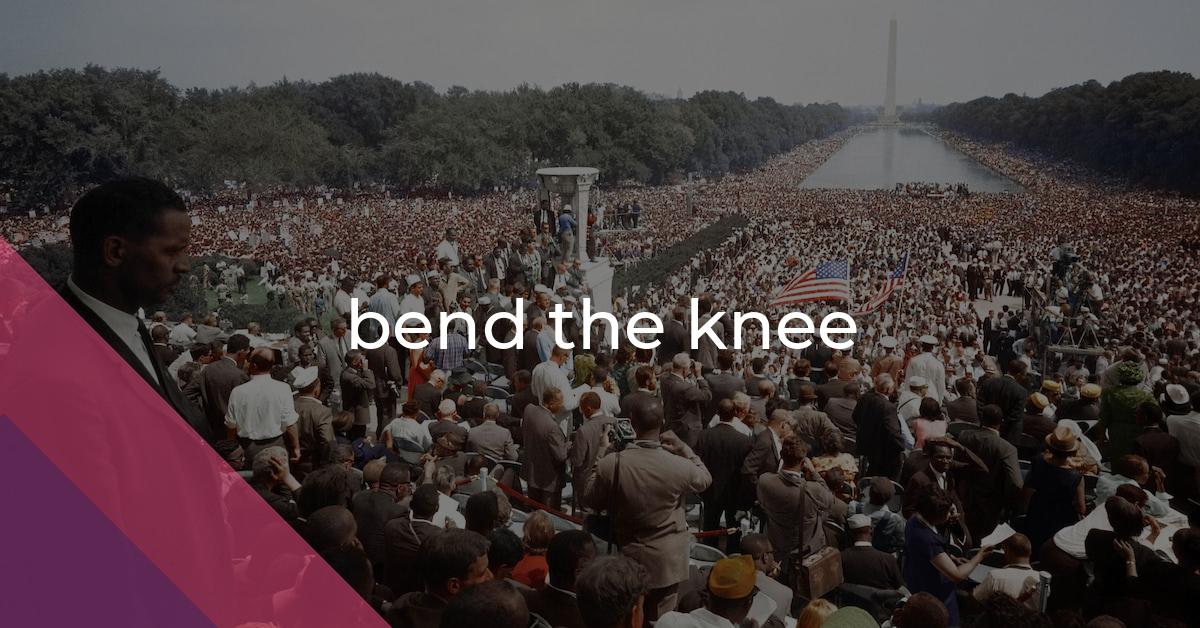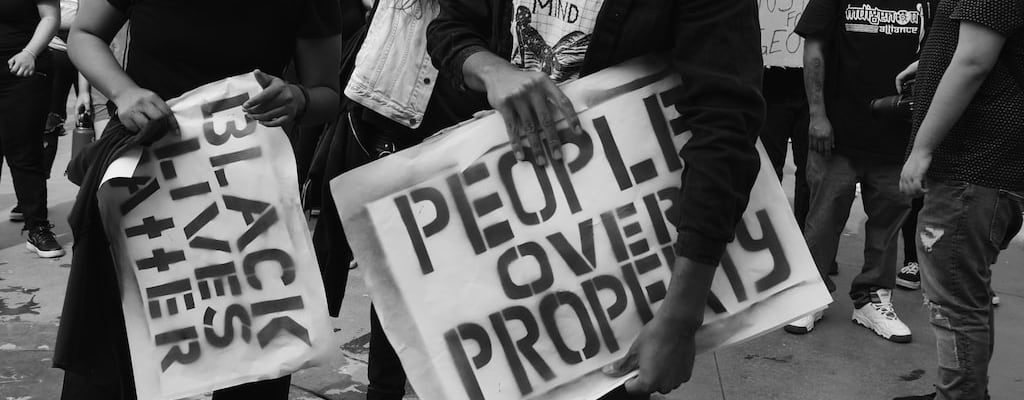bend the knee: Idiom Meaning and Origin
What does ‘bend the knee’ mean?
The idiom "bend the knee" means to submit or surrender, often in a symbolic or figurative sense, to someone or something of higher authority or power.

Idiom Explorer
The idiom "on one's knees" means to be in a position of extreme weakness or desperation.
The idiom "knock down a peg" means to humble or deflate someone's ego or pride. It is used when someone's self-importance or arrogance needs to be brought down to a more reasonable level.
The idiom "kiss someone's ass" means to excessively flatter or show submissive behavior towards someone in order to gain their favor or approval.
The idiom "kiss ass" means to excessively flatter or praise someone in order to gain favor or advantage, typically in a subservient or insincere manner.
The idiom "kiss arse" means to obsequiously flatter or grovel in order to gain favor or advantage, often by being excessively complimentary or subservient towards someone in a position of power or authority.
The idiom "hat in hand" means to be humble or submissive, often after a failure or when seeking forgiveness or help.
The idiom "go to the bow-wows" means to deteriorate or decline in a significant way.
The idiom "go begging" means to be unwanted, rejected, or not valued by others.
Unveiling Subservience
Bend the knee is an English idiom with its roots in medieval times. The phrase is derived from the act of kneeling, which is a gesture of submission or reverence. It is commonly used metaphorically to describe yielding or surrendering to someone or something more powerful or authoritative.
The origins of the concept of bending the knee can be traced back to medieval times and the tradition of feudalism. In feudal societies, vassals or subjects would kneel before their lord or king as a sign of respect and loyalty. By bending the knee, the vassal would acknowledge the authority of their superior and pledge their allegiance.
This act of submission eventually became symbolic and entered into the realm of language and idiomatic expressions. The phrase "bend the knee" started to be used figuratively to represent acts of deference, subservience, or acquiescence in various contexts.
In modern usage, the idiom "bend the knee" often appears in political and social contexts. It can be used to describe situations where someone is compelled to acknowledge another's authority or power. For instance, a politician may be asked to bend the knee to a powerful interest group or a country might be forced to bend the knee to the demands of an international organization.
The idiom can also illustrate situations where individuals or groups willingly submit to someone or something more dominant. In this sense, bending the knee can imply a voluntary act of yielding or surrendering, possibly due to admiration, respect, or fear.
Furthermore, the phrase "bend the knee" has gained increased prominence in popular culture in recent years. Its inclusion in television shows, movies, and literature, particularly within the context of fantasy and historical genres, has popularized it. This exposure has contributed to the idiom's continued usage and resonance in contemporary discourse.
This idiom primarily conveys notions of submission and reverence. However, it also carries subtle connotations of power dynamics, authority, and even resistance. When someone bends the knee, it implies a temporary shift in power dynamics and an acknowledgment of a higher authority. Nevertheless, it raises questions about the motivations behind such acts and the potential for defiance and resistance to persist.
The related idioms "bend to someone's will," "knuckle under," "bend to one's will," and "on one's knees" share a connection with the idiom "bend the knee." They all convey the idea of yielding or surrendering to someone's authority or power. These idioms emphasize the act of submitting, whether willingly or under duress.
The phrase "bend to someone's will" implies giving in to someone else's desires or demands. It suggests a loss of personal agency or autonomy and a willingness to comply with another person's wishes.
"Knuckle under" is another idiom that is closely related to "bend the knee." It means to submit or give in to pressure or authority. When someone "knuckles under," they are yielding to someone else's power or control.
In a similar vein, the idiom "bend to one's will" carries a similar meaning. It implies giving in to the desires or demands of another person, often due to their influence or power. It suggests a voluntary act of surrender or acquiescence.
The phrase "on one's knees" is yet another idiom that is connected to "bend the knee." It denotes being in a position of subservience or supplication. It can imply a state of vulnerability or submission to someone or something more authoritative.
Example usage
Examples of how the idiom *bend the knee* can be used in a sentence:
- He refused to bend the knee to the tyrant, even at the risk of his own life.
- The politician's opponents demanded that he bend the knee and apologize for his actions.
- After years of conflict, the two nations finally agreed to bend the knee and sign a peace treaty.
More "Submission" idioms



